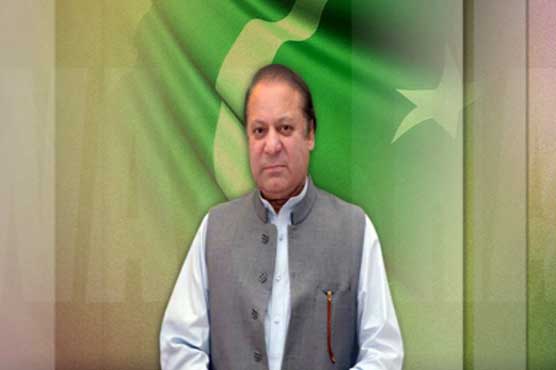

ISLAMABAD: Without any compromise on the on-going Karachi operation, the government of Pakistan has decided not to let the Muttahida Qaumi Movement (MQM) resign from the assemblies.
To get the issue arising out of the MQM’s resignation move settled amicably, the government and the speaker National Assembly have also got a hold of a solid “legal” ground in the form of a recent high court judgment to avoid accepting the mass resignations of MQM MPs.
A decision of the Islamabad High Court, handed down only recently in a case seeking de-seating of PTI MNAs on the basis of their mass resignations, has given the government as well as the speaker National Assembly enough space to engage the MQM in a dialogue process aimed at keeping the membership of the Muttahida’s MPs intact.
In Syed Zafar Ali Shah vs Federation of Pakistan case, the IHC set a few conditions for the acceptance of a resignation from an MP while observing that for a resignation to take effect under Article 64 of the Constitution, it is not enough that the member has written it under his or her name addressed to the speaker.
The court ruled against the acceptance of mass resignations and urged upon a fair inquiry by the speaker of each individual to ensure that no one was de-seated unjustly and unfairly.
The court noted unambiguously that the nature of the political arena is such that while the member may have individually written his resignation addressed to the speaker, coupled with announcing it publicly, he yet may not have intended to actually relinquish or quit the seat.
The judgment also endorsed the law point established in an earlier judgment that an MP can retract his resignation.
The IHC ruling said, “The crucial test, or mandatory pre requisite for the seat to become vacant on resignation, is the fulfilment of the constitutional duty of the speaker to be satisfied that three factors are established: firstly, that it is tendered voluntarily, secondly, it is genuine and lastly, that the member actually intended to relinquish, relieve or quit the post, position or seat and thereby vacate the seat.”
The court ruling added, “It is also not enough that the member who has tendered the resignation makes public announcements in this regard, or presents him or herself en masse before the speaker.
The speaker is under a constitutional duty to undertake an inquiry personally to satisfy him regarding the three factors or requirements in each case independently.”
“The aforementioned three requirements are to be proved positively to the satisfaction of the Speaker.
Furthermore, if before the inquiry is concluded, or/and the Speaker has not passed any order, nor achieved the level of satisfaction so required for giving effect to the resignation, the member retracts by communicating in any manner, whether in writing or through conduct, such as by making a public announcement, or attending the sittings of the National Assembly, then the resignation written and addressed to the speaker becomes ineffective as it is no more valid and no further order or action would be required.”
The court order said, “It would also not be out of context to look at the scope and meaning of the two expressions i.e. ‘genuine’ and ‘voluntary’ which have to be positively proved to the satisfaction of the speaker.
‘Genuine’ has been defined in Black’s Law Dictionary, 8th Edition as (of a thing) authentic or real; something that has the quality of what it is purported to be or to have the plaintiff failed to question whether the exhibits were genuine (of an instrument), free of forgery or counterfeiting, the Bank teller could not determine whether the signature on cheque was genuine.
Likewise the definition in the 4th Edition is, ‘As applied to notes, bonds, and other written instruments, this term means that they are truly what they purport to be, and that they are not false, forged, fictitious, simulated, spurious, or counterfeit’.
‘Voluntary’ has been defined as “Done by design or intention voluntary act, ‘unconstrained by interference; not impelled by outside influence; spontaneous; acting of oneself without valuable consideration; gratuitous’.
The scope and meanings are expansive and, therefore, determine the heavy bar of duty on the speaker in reaching the level of satisfaction required to give effect to the resignation, thereby depriving the actual stake holders of the seat in the National Assembly, i.e. the people of the concerned constituency.
This becomes even more important, as highlighted in the precedent law, when the resignations have been given in mass by members belonging to a particular political party.
It is for this reason that the august Supreme Court has laid stress in Abdul Razique Khan V The Province of Sindh, supra, that ‘unless all the three requirements of the resignation are satisfied it is dangerous in the political milieu in which we are living to give effect to such resignations’.”
According to the IHC ruling, “The nature of the political arena is such that while the member may have individually written his resignation addressed to the speaker, coupled with announcing it publicly, yet may not have intended to actually relinquish or quit the seat.
Such reasons may be countless and unfathomable.
Internews




